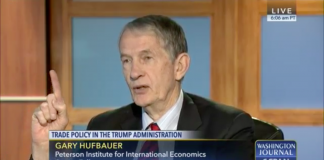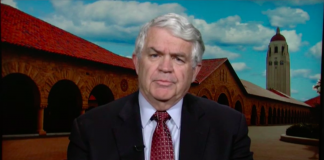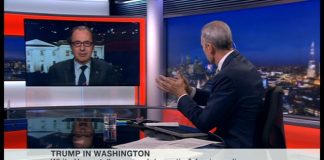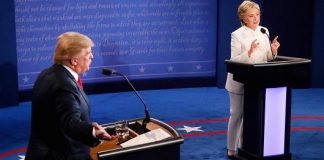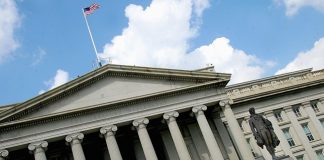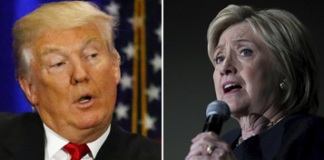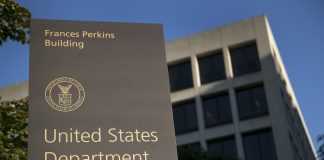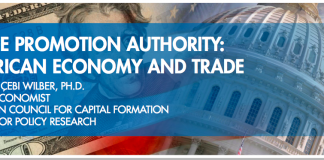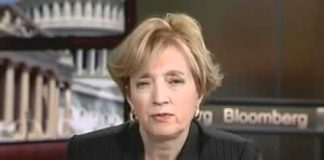Efforts to Increases Taxes on Oil Producers in Alaska Might Not...
Originally published in Real Clear Energy
As Alaska slips deeper into a recession that began in mid-2014, lawmakers in the 49th state are wrestling with ways to close a $3 billion budget deficit caused, primarily, by an extended period of low oil prices. But increasing the tax burden on the government’s number one source of revenue when the industry is struggling with declining production, increased regulatory costs, and falling profits is likely to collect less, not more for the state’s treasury.
As Alaska slips deeper into a recession that began in mid-2014, lawmakers in the 49th state are wrestling with ways to close a $3 billion budget deficit caused, primarily, by an extended period of low oil prices. But increasing the tax burden on the government’s number one source of revenue when the industry is struggling with declining production, increased regulatory costs, and falling profits is likely to collect less, not more for the state’s treasury.
What’s the big deal about trade deals?
Published in Bankrate.com
Wilber says renegotiating U.S. trade deals "will not happen overnight" because the deals are complex and involve many countries and products. "Think about the United States trying to decide which products to go after and then bilaterally trying to sit down with (each) country to arrange that," she says. "It's not very practical."
Wilber says renegotiating U.S. trade deals "will not happen overnight" because the deals are complex and involve many countries and products. "Think about the United States trying to decide which products to go after and then bilaterally trying to sit down with (each) country to arrange that," she says. "It's not very practical."
C-SPAN: ACCF Scholar Gary Hufbauer Discusses Trade Policy
ACCF scholar Gary Hufbauer talks trade policy under the incoming Trump administration on C-SPAN's Washington Journal.
How Donald J. Trump Could Promote Long-Term Economic Growth
Published in New York Times
Dean of Columbia Business School and ACCF scholar R. Glenn Hubbard writes in New York Times that President-elect Trump could give U.S. economic markets a much needed shot in the arm by closing the door on failed efforts at stimulus and overreliance on monetary policy that have held back growth and aggravated economic anxiety for many households and business people.
Dean of Columbia Business School and ACCF scholar R. Glenn Hubbard writes in New York Times that President-elect Trump could give U.S. economic markets a much needed shot in the arm by closing the door on failed efforts at stimulus and overreliance on monetary policy that have held back growth and aggravated economic anxiety for many households and business people.
ACCF Scholar: Fed Policy in the Trump Administration
Aired on Bloomberg Daybreak
John Taylor, Stanford University economics professor and ACCF Center for Policy Research Scholar, discusses the outlook for Fed policy and President-elect Donald Trump's economic policies with Bloomberg's Kathleen Hays and Betty Liu on "Bloomberg Daybreak: Asia."
John Taylor, Stanford University economics professor and ACCF Center for Policy Research Scholar, discusses the outlook for Fed policy and President-elect Donald Trump's economic policies with Bloomberg's Kathleen Hays and Betty Liu on "Bloomberg Daybreak: Asia."
BBC: Bloomfield on Trump Transition
Published in BBC World News
On BBC World News, ACCF President & CEO Mark Bloomfield discusses the intricate details of the presidential transition process.
On BBC World News, ACCF President & CEO Mark Bloomfield discusses the intricate details of the presidential transition process.
Clinton and Trump are both wrong about trade deals
Published on CNBC.com
Both campaigns have tapped into voter anger over U.S. job losses and have placed blame solely on our "evil" trade partners. The most recent swipe was a memo released by the Trump camp discussing job losses in Pennsylvania which they attributed to NAFTA and the South Korea trade agreement. The numbers are packaged to be as scary as possible to voters, but any economist will tell you that statistics can be used to spin many different compelling stories. And there is more than one factor at work here.
Both campaigns have tapped into voter anger over U.S. job losses and have placed blame solely on our "evil" trade partners. The most recent swipe was a memo released by the Trump camp discussing job losses in Pennsylvania which they attributed to NAFTA and the South Korea trade agreement. The numbers are packaged to be as scary as possible to voters, but any economist will tell you that statistics can be used to spin many different compelling stories. And there is more than one factor at work here.
Cash pool issues still abound under Treasury’s final debt-equity tax regs
Published in The Hill
“The regulations turned the debt-equity world on its head in an attempt to address a perceived inversion problem...”
“The regulations turned the debt-equity world on its head in an attempt to address a perceived inversion problem...”
American University Kogod Business School: ACCF on “Best Ideas to Grow...
“Best Ideas to Grow the Economy,” 50 recommendations from Fortune 500 CEOs, small business owners, startup founders, state and local government officials and thought leaders from across the country.
Apple and Microsoft might be new poster children for tax reform
Published in The Hill
Several news stories this summer demonstrate what many of us already know to be true: Our outdated tax code is keeping much-needed investment money overseas instead of here in the United States.
Several news stories this summer demonstrate what many of us already know to be true: Our outdated tax code is keeping much-needed investment money overseas instead of here in the United States.
Op-Ed: Candidates should stump on capital formation
Published in The Hill
By creating a tax system that is conducive to growth, Washington will help U.S. businesses and families focus once again on investing for the future, which will once again spur the kind of growth our economy needs.
By creating a tax system that is conducive to growth, Washington will help U.S. businesses and families focus once again on investing for the future, which will once again spur the kind of growth our economy needs.
Fiduciary Rule Puts Retirement Savers At Risk
Published in Daily Caller
Under the new rule, financial advisors will be burdened with increased compliance considerations and greater legal liability, which will in turn increase the cost and restrict access to affordable retirement advice for many hardworking Americans.
Under the new rule, financial advisors will be burdened with increased compliance considerations and greater legal liability, which will in turn increase the cost and restrict access to affordable retirement advice for many hardworking Americans.
Advisers, Robotic or Not, Should First Do No Harm
The Wall Street Journal
Maybe it’s time to introduce the guiding principle of physicians to financial regulations: “First do no harm.”
Robert Litan and Hal Singer’s “Obama’s Big Idea...
Special Report: Trade Promotion Authority – American Economy & Trade
This special report discusses the importance of TPA in trade negotiations, as well as the positive impact of a system that promotes open markets on U.S. jobs and economic growth.
Making Savings Last During Retirement: Lessons From Behavioral Economics
This report looks at the existing literature on behavioral economics, which has traditionally focused on the accumulation phase of retirement planning, and con- siders the applicability of some of its findings to the payout phase in order to understand how guaranteed lifetime income can be made a natural part of the retirement decision for individuals at varying income levels.




